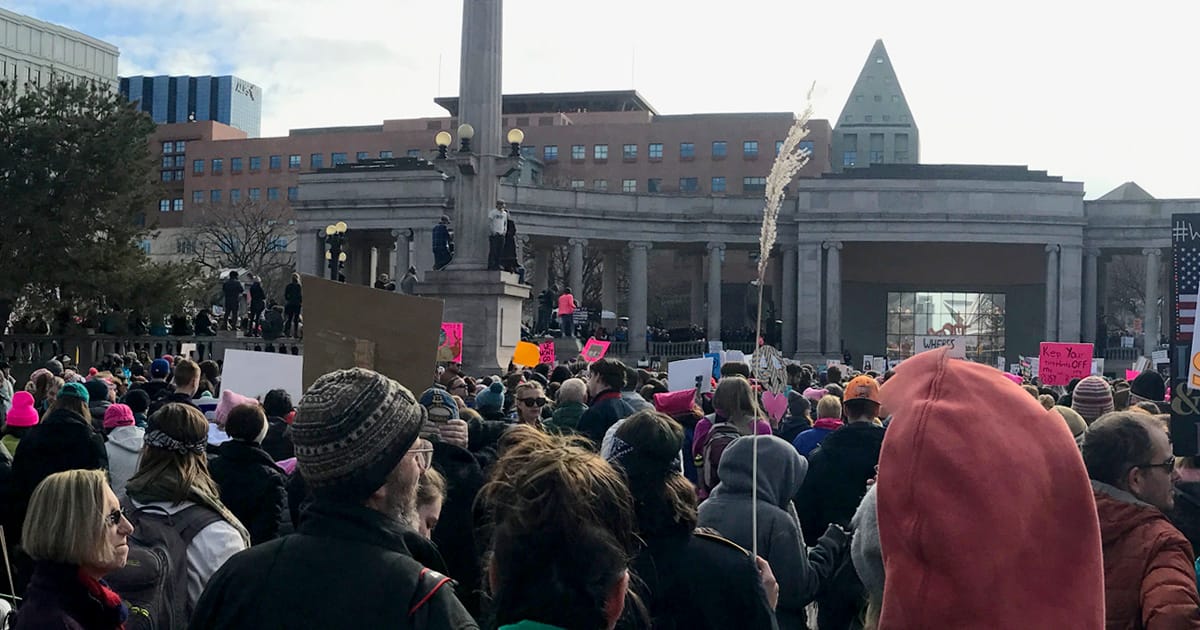The controversial executive order blocking immigrants and refugees from seven middle eastern countries from entering the United States has been partially shut down. A Federal Court Judge granted a temporary restraining order stopping the government from refusing entry for people with valid immigrant visas, but didn’t address the fate of refugees or tourists.

The executive order, as signed by Donald Trump, targets immigrants and refugees from Iraq, Iran, Sudan, Syria, Libya, Somalia, and Yemen on the grounds that they could engage in terrorist acts. The order sparked demonstrations at several airports when valid green card holders and people who had already been approved for immigration where detained and in some cases were put flights leaving the country.
The temporary restraining order prevents the government from removing, detaining, or blocking the entry of people from the named countries, and from cancelling validly obtained immigrant visas.
Refugees and the Immigration Ban
The fact that the restraining order doesn’t address refugees is unfortunate, but makes sense. The case requesting the order was filed on behalf of 28 Yemeni people with valid immigrant visas, and the Judge was ruling within the scope of their complaint. Since there weren’t any refugees named in the case, the Judge didn’t address their status in relation to the executive order.
For immigrants impacted by the executive order, the temporary restraining order is a huge win. It’s also good news for the tech industry because immigrants with valid visas are playing important roles in many companies including Apple.
Silicon Valley and the Immigration Ban
Silicon Valley companies have been speaking out against Mr. Trump’s order. In an open letter to employees, Apple CE Tim Cook said,
In my conversations with officials here in Washington this week, I’ve made it clear that Apple believes deeply in the importance of immigration — both to our company and to our nation’s future. Apple would not exist without immigration, let alone thrive and innovate the way we do.
With the temporary restraining order in place, immigrant employees for companies can continue to work and travel just as they did before the executive order. Their fight isn’t, however, over. Mr. Trump made it clear during his presidential campaign he wants to close off the U.S. to more people and his immigration executive order is only part of that plan.
[Thanks to Ars Technica for the heads up]
Lee:
That was an example of ‘truthful hyperbole’.
Just trying to roll with the times.
Well the Bab el Mandeb strait is over 20 miles wide, but point taken. 😀
Jeff:
Given your and Bryan’s fondness of the pedantic, one might observe that at least two of the aforementioned countries, Sudan and Somalia, are technically not ‘Middle Eastern’, albeit majority Muslim or Islamic, and this despite the fact that you could practically throw a rock from Somalia into Yemen.
It is common for the press to refer to Muslim majority countries as Middle Eastern, as most (not all) Middle Eastern countries are Muslim majority, although for true pedants would separate Near Eastern countries, like Israel and Jordan, from that group, but let’s not digress. One can even find articles lumping Muslim majority countries like Afghanistan, Bangladesh and Indonesia into ‘Middle Eastern’ discussion.
One can generally lump all of the countries formerly part of the Ottoman Caliphate and the Persian Gulf (Iran) into the Middle East, and not be wrong. Unless you’re talking to a pedant.